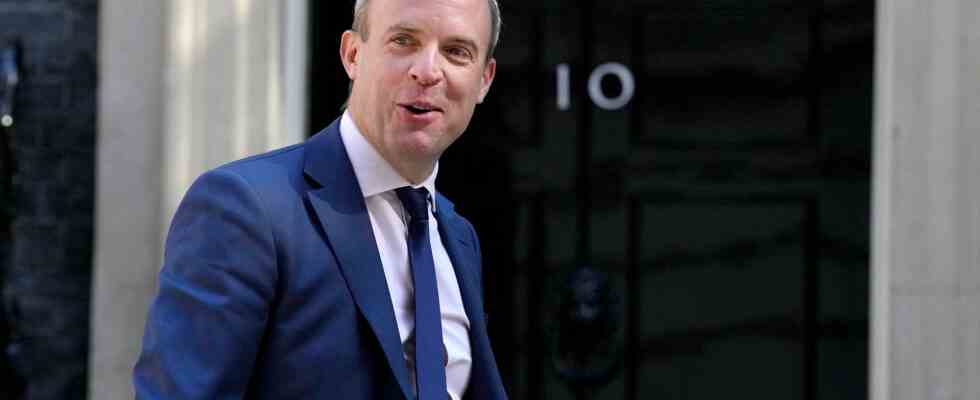As of: 06/22/2022 5:28 p.m
A week ago, the European Court of Human Rights stopped a British deportation flight to Rwanda. The government in London wants to prevent such interference in the future – with the help of a corresponding law.
The British government no longer wants to accept the European Court of Human Rights as the last resort in human rights issues. Justice Minister Dominic Raab made this clear in Parliament in London when he presented a corresponding bill.
The law, known as the Bill of Rights, will ensure that the British Supreme Court will have the final say on these matters in the future, Raab said in the House of Commons. In addition, the planned law should ensure that injunctions by the Strasbourg judges are no longer binding in Great Britain.
The aim is to strengthen the British tradition of freedom and to breathe “a good dose of common sense” into the system. The authorities would be able to “expel more foreign criminals and better protect the public from dangerous criminals,” Raab told Sky News before the meeting.
London spoke of interference
Last week, a decision by the Strasbourg court blocked Britain’s controversial plan to send asylum seekers of various nationalities by plane to Rwanda, where they would instead apply for asylum. The judges ruled that the British judiciary still has to examine in detail the legality of the deportations.
The British government reacted angrily and spoke of a “politically motivated” decision. The portrayal that the European court’s decision has a political dimension fits with London’s portrayal of a threat to British sovereignty from European institutions. Under the new rules, British courts will have the final say in such cases.
No full retreat
However, the ECtHR is not part of the European Union, from which Great Britain has left. Instead, it is the judicial body of the Council of Europe, of which Great Britain remains a member. Complaints against all 46 member states can be brought before the court on suspicion of violations of the European Convention on Human Rights.
Great Britain has so far refused to withdraw from the human rights convention, as Russia recently did. Minister of Justice Raab wants to stick to it, but change the implementation of the convention and the handling of corresponding judgments.
What is the European Court of Human Rights?
The European Court of Human Rights (ECtHR) based in Strasbourg is not an organ of the European Union. The Council of Europe is behind the ECtHR. There are also states that are not members of the EU – for example Turkey or the United Kingdom. For this reason, the ECtHR can also make binding decisions for these countries. In terms of content, the Strasbourg judges examine whether the respective state measures are compatible with the European Convention on Human Rights (ECHR).
Usually, the way to the ECtHR is only open when the legal channels at national level have been exhausted, i.e. no more legal remedies in the country are possible. In particularly urgent cases, Strasbourg can also make provisional decisions in an urgent procedure. In these cases, the content is mostly about the threat of deportation. In the past, 100 to 200 such urgent applications per year were successful.
By Christoph Kehlbach and Maximilian Bauer, ARD legal department
Sharp criticism from lawyers
The opposition Labor Party and human rights organizations were alarmed. Amnesty International UK said the plan was a “huge step backwards for the rights of ordinary people”.
The lawyers’ association Law Society also criticized the proposed legislation. This will make some human rights abuses acceptable in Britain, President Stephanie Boyce said, according to the BBC. It also gives the state greater power over its citizens – a power that all future governments would have, regardless of their goals and values.
GB partially breaks away from European Convention on Human Rights
Christoph Proessl, ARD London, 22.6.2022 5:24 p.m

